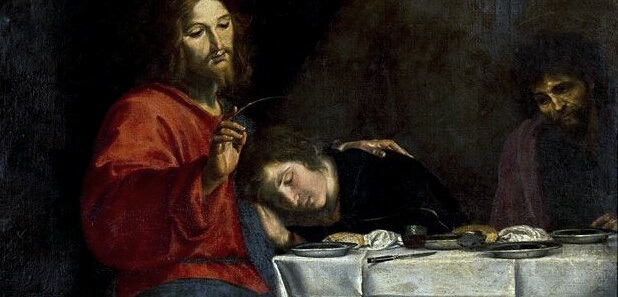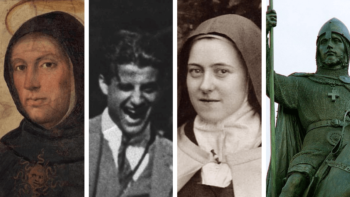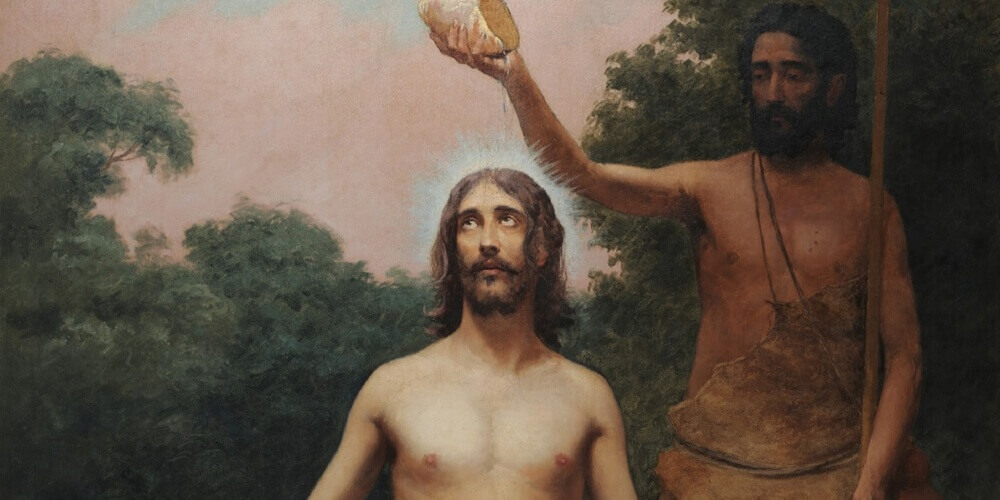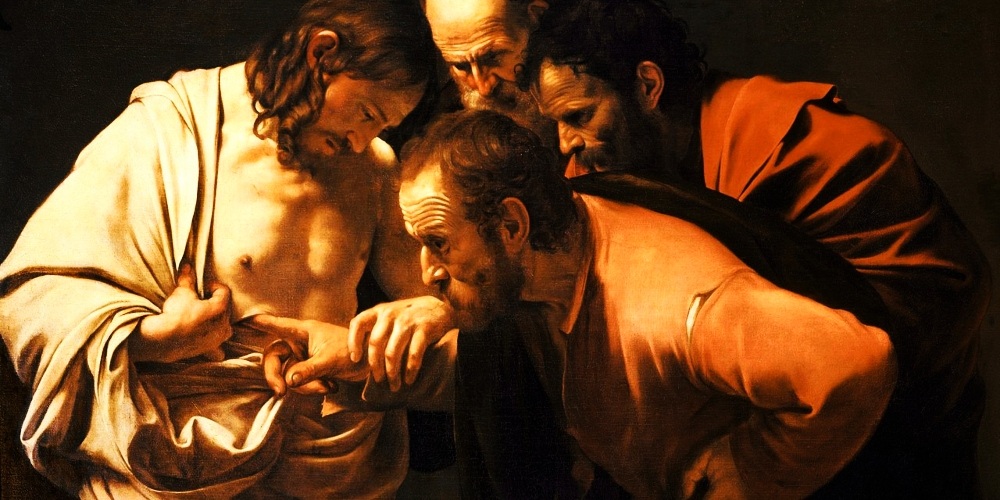
He’s the only Apostle officially titled “the doubting one.”
To this day his name is used as a label for skeptics.
Poor Thomas wasn’t the only doubtful disciple—but he sure is the one who made his skepticism known.
Of course, if he hadn’t missed Jesus’ first appearance in the Upper Room that night…
There wouldn’t be a Doubting Thomas.
Nor would we have his profound utterance of faith.
So what happened? Why did Jesus come while Thomas was out?
Setting the Scene: Who Was There and Why
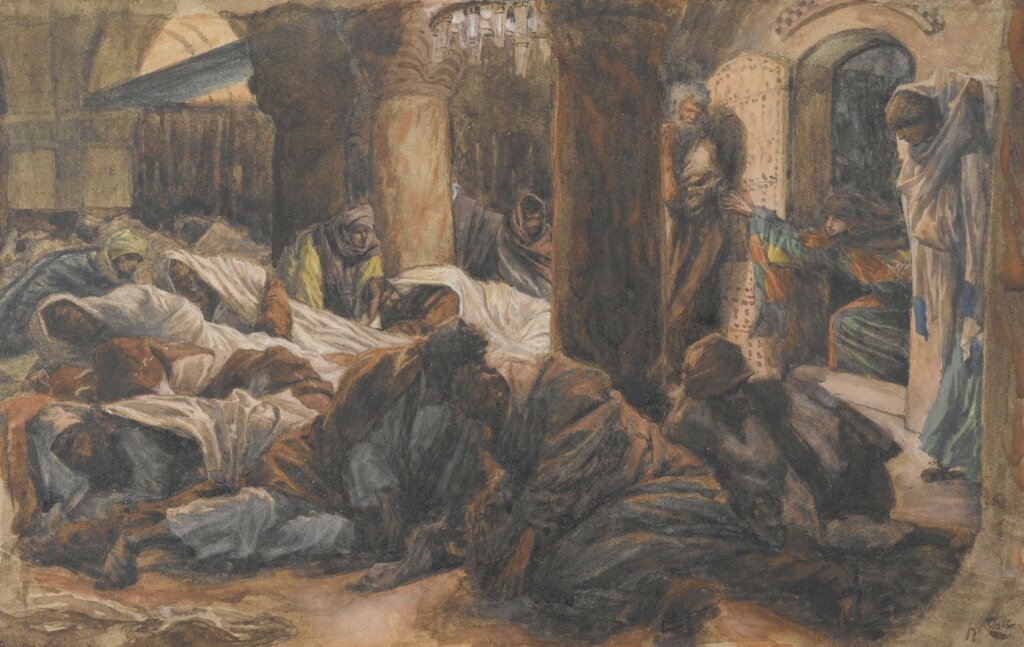
It is the evening of the first Easter.
The Apostles have returned to the Upper Room where, seventy-two hours before, they celebrated the Last Supper with Jesus.
It’s been seventy-two hours since John laid His head on the Sacred Heart; seventy-two hours since Peter professed his willingness to die with Christ and then abandoned Him; seventy-two hours since they had grieved over His approaching departure and then left Him before He left them.
The Eleven are together, consumed by memories, grief, desires, regrets, and apprehensions.
The women have told them of the empty tomb. Peter and John have seen it themselves, but they don’t know what to think yet.
On the evening of that day, the first day of the week, the doors being shut where the disciples were, for fear of the Jews, Jesus came and stood among them and said to them, “Peace be with you.” When he had said this, he showed them his hands and his side. Then the disciples were glad when they saw the Lord. Jesus said to them again, “Peace be with you. As the Father has sent me, even so I send you.” And when he had said this, he breathed on them, and said to them, “Receive the Holy Spirit. If you forgive the sins of any, they are forgiven; if you retain the sins of any, they are retained.”
John 20:19-23
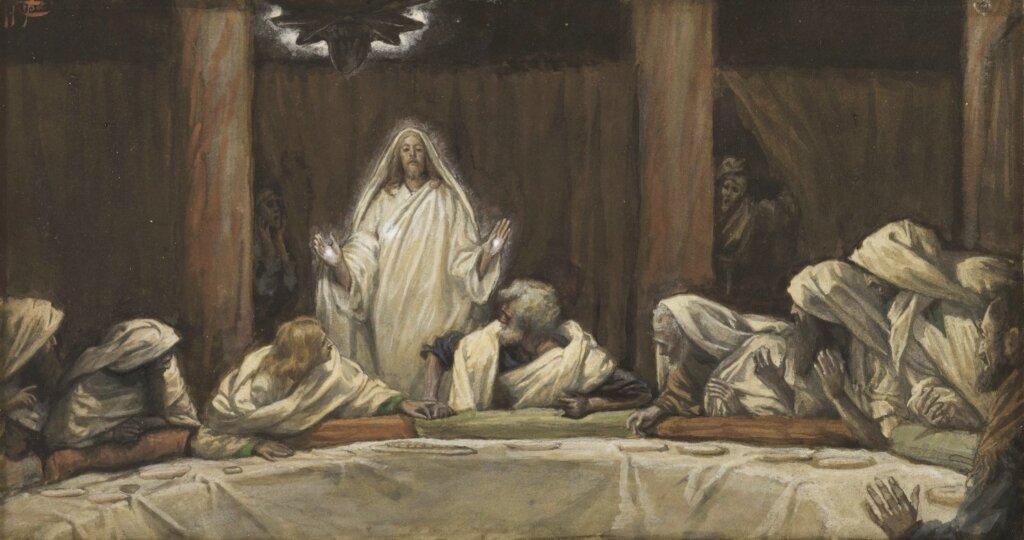
The doors are locked, yet without warning, Jesus enters and stands in their midst. They behold the risen Lord: real, radiant, looking at them.
Jesus knew that they were overwhelmed by His entry through locked doors. He knew they were wondering if He were a ghost, and He “would not rest until He had completely satisfied their senses” says Fulton Sheen (Life of Christ).
He asks for some food and eats it in their presence.
He shows them the lance-mark in His side and the nail holes in His wrists and feet.
How mysterious a place is heaven, where God Himself in His resurrected body wears earthly wounds made glorious!
Then Our Lord breathed on them as He conferred some power of the Holy Spirit. When love is deep, it is always speechless or wordless; God’s love is so deep that it can be expressed humanly by a sigh or a breath… It was but a cloud that would precede the plenteous rain; better still, it was the breath of the Spirit’s influence and a foretelling of the rushing wind of Pentecost. As He breathed into Adam the breath of natural life, so now He breathed into His Apostles, the foundation of His Church, the breath of spiritual life.
Venerable Fulton Sheen, Life of Christ
The Apostles have received Jesus’ blessing. They have been strengthened in advance of the birth of the Church, which is coming very soon.
But someone is missing out on this emotionally-charged scene: Thomas.
Missing Person: Was Thomas’s Absence a Sign of Courage?
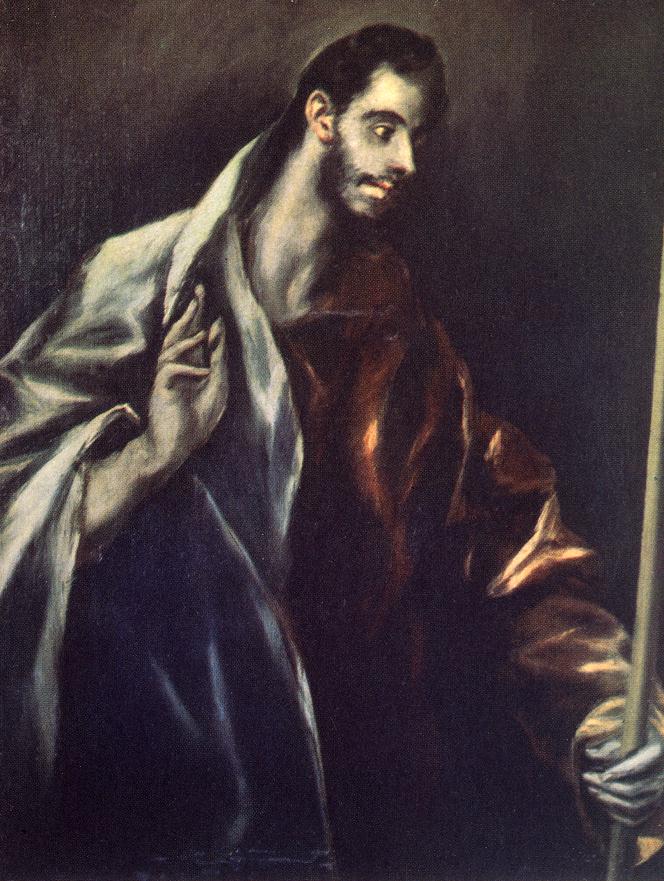
[T]he doors [were] shut where the disciples were, for fear of the Jews…
Now Thomas…was not with them when Jesus came.
John 20:24
Where on earth was Thomas? How could he step out at a time like this?
This absence is more impressive than it first appears.
Remember that the Apostles are hiding behind locked doors in fear. If Thomas isn’t there, then Thomas has left the “secure” hiding place.
It was probably some simple and necessary errand: obtaining food for the group, communicating with their families, or some other “mundane” errand. Perhaps reluctant discussion had led to his being chosen as the errand-goer—perhaps he volunteered.
Whatever the case may be, Thomas must have been forced to conquer his own fear to leave that secure Upper Room.
You may recall his boldness in saying “Let us go to die with him” (cf. John 11:16) when Jesus announced His decision to return to the city that had plans to kill Him. Clearly Thomas had some boldness of character, even if—as did most of the others—he abandoned Christ during His passion.
Well, now he comes back to Upper Room, only to find the others in giddy hysteria—insisting they’ve seen Jesus.
So the other disciples told him, “We have seen the Lord.” But he said to them, “Unless I see in his hands the print of the nails, and place my finger in the mark of the nails, and place my hand in his side, I will not believe.”
John 20:24-25
Even with ten witnesses, Thomas is skeptical. He refuses to budge.
“This sturdy individualist was unimpressed by the story the others told of Christ’s rising,” writes theologian Frank Sheed. “He had to see for himself” (To Know Christ Jesus).
And he would.
Eight days later, his disciples were again in the house, and Thomas was with them. The doors were shut, but Jesus came and stood among them, and said, “Peace be with you.” Then he said to Thomas, “Put your finger here, and see my hands; and put out your hand, and place it in my side; do not be faithless, but believing.” Thomas answered him, “My Lord and my God!” Jesus said to him, “Have you believed because you have seen me? Blessed are those who have not seen and yet believe.”
John 20:26-29
Jesus Came On Purpose While Thomas Was Out
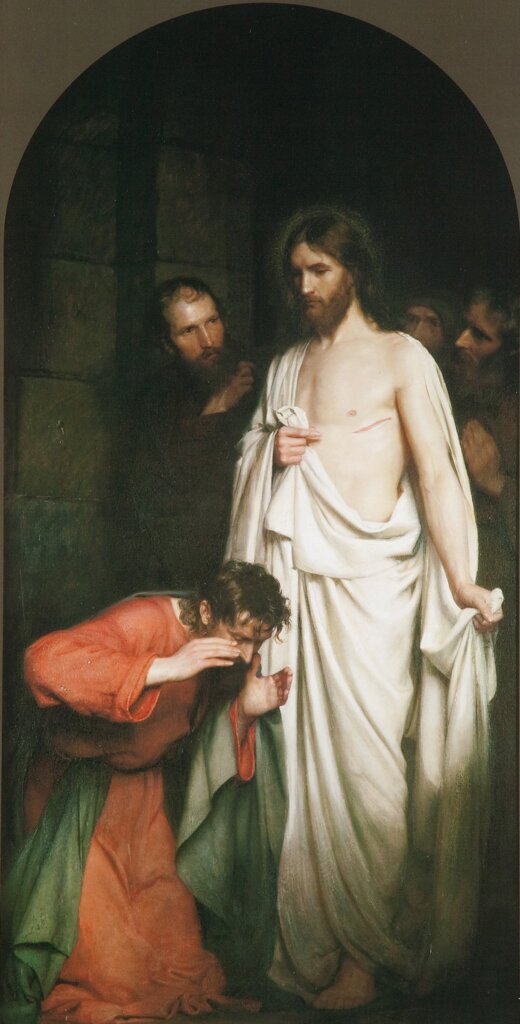
There’s something else to remember about Thomas’s absence: it wasn’t an accident.
It was intended by divine providence.
Pope St. Gregory the Great says to us:
Surely you do not think that it was pure accident that that chosen disciple was missing; who on his return was told about the appearance and on hearing about it doubted; doubting, so that he might touch and believe by touching? It was not an accident; God arranged that it should happen. His clemency acted in this wonderful way so that through the doubting disciple touching the wounds in his Master’s body, our own wounds of incredulity might be healed.
Pope St. Gregory the Great
Thomas missed the first encounter with Christ, was gently rebuked by Him on the second, and invited to touch the sacred wounds—something he had insisted upon. God is kinder to us than we can expect or even deserve; He often stoops down to our blinded cynicism and broken hearts.
Jesus did not have to do this—He chose to condescend to the demands of Thomas, whose “extraordinary skepticism is [now] an added proof of the reality of the Resurrection” (Sheen, Life of Christ).
Our own faith is made stronger by Jesus’ mercy toward unhappy Thomas. This mercy set him free from skepticism in order to prevent us from claiming similar skepticism.
When Jesus said to Thomas, “Blessed are those who have not seen and believed,” He was speaking about us:
The future believers, the Lord implied, must accept the fact of the Resurrection from those who had been with Him. Our Lord thus pictured the faith of believers after the apostolic age when there would be none who would have seen it; but their faith would have a foundation because the Apostles themselves had seen the Risen Christ.
Venerable Fulton Sheen, Life of Christ

“My Lord and my God,” Thomas cried out, falling to his knees.
The man who refused to believe became a believer. The man who knew that his Master had been brutally executed and buried in a rock tomb saw that He had walked out of it alive again, in the Flesh, fully tangible, exposing His wounds for Thomas to touch.
We may feel skeptical, but Thomas beat us to it. His refusal to believe without personal experience of the evidence ended in some pretty impressive empirical proof—as well as a loving rebuke, and the admonition that those who will believe without the benefit of Jesus’ visible presence are the ones who are blessed.
Now we know why Jesus came while Thomas was out.
What do you think about Thomas’s absence from the Upper Room?
How has his doubt impacted your own faith—if at all?
Share your thoughts with us in the comments below! We want to hear from you.

